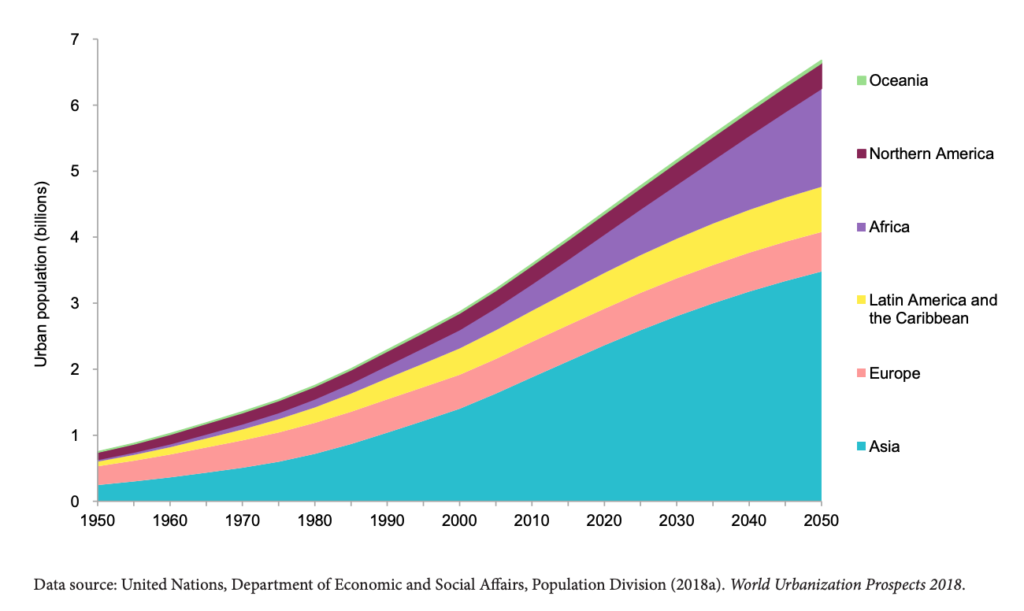The United Nations Climate Summit in New York was touted by many as a failure due to its inability to obtain adequate national pledges with which to face the current climate crisis. Scientists indicate that, if current national emissions-cutting targets are maintained, we are set to reach 3C warming by 2050. Prominent figures such as Johan Rockstrom, director designate at the Potsdam Institute for Climate Impact Research, criticised the summit for its inability to provide sufficient commitments: “My biggest concern is that the UN talks failed to align ambitions with science. We continue to follow a path that will take us to a very dangerous 3-4C warmer world within this century.”
And he wasn’t the only one. In what has already become an iconic speech, Swedish activist and revered leader of the Fridays for Future climate action movement Greta Thunberg, also reprimanded global leaders: “You have stolen my dreams and my childhood with your empty words.”
The consensus is that national leaders are not doing enough to meet the recommendations of scientists with regards to climate change. However, in light of these shortcomings a group of cities and their mayors are taking the initiative, providing innovative solutions. Following the New York climate Summit, Mark Watts, executive director of C40 Cities, told the Guardian that “the next most powerful group of politicians” were the mayors of the biggest cities, and it is therefore important that cities send a strong message.
It makes what we do even more important, because in the context of those really powerful nations not only holding back their own actions but blocking the whole of the United Nations, we’ve got to have momentum coming from somewhere else
Mark Watts executive director of C40.
In New York, over 100 cities pledged to achieve net zero emissions by 2050, setting in motion a vital cog in the race to address human impact on the environment and representing one of the most positive outcomes to have emerged from the Climate Summit. In what can almost be described as an act of defiance against national policies, cities are stepping up and aiming to take a leading role in tackling climate change.
Just how important are cities
Cities are an essential cog in the fight against climate change for a variety of reasons. Firstly, cities are expanding rapidly across the globe and will therefore have an ever increasing influence on the planetary trajectory. According to the 2018 Revision of World Urbanization Prospects, produced by the Population Division of the UN Department of Economic and Social Affairs (UN DESA), 55% of the global population currently live in urban areas, having grown from 751 million urban dwellers in 1950 to 4.2 billion in 2018. Furthermore, a further 2.5 billion people are predicted to live in urban areas by 2050, amounting to almost 68% of global population.

Urban population of the world by geographic region, 1950-2050. Taken from: UN, World Urbanization Prospects 2018.
Not only are cities home to the majority of the world’s people but, according to the UN Environment Programme, they are also responsible for 75% of global CO2 emissions and consume over two-thirds of the world’s energy.
At the same time, cities are also some of the most exposed areas to the effects of climate change. Around 90% of cities are situated on the world’s coastlines making them particularly susceptible to climate change induced phenomenon such as rising sea levels and powerful coastal storms.
Yet, there is also a lot of hope for a better future to be found in cities. They are the global heart of communications, economic transactions and culture; the true centres of innovation and development; hotspots of human creativity and problem solving. Cities can provide real solutions to the climate crisis, both individually and in unison, by addressing their inherent problems of inclusion, energy management, industry, waste and mobility.
Smart cities for a smart future
Bringing cities together so that efforts can be coordinated and increase sharing of information will be a key component in their potential for success. A number of organizations are dedicated to providing the tools for sharing of information and networking between cities; initiatives such as Sharingcities, Smart Cities and Communities and the increasingly influential C40 Cities.
C40 Cities is a global network of cities that are united in wanting to address the climate crisis. From 9-12 October, 94 of the world’s cities came together in Denmark as part of a C40 cities conference to discuss future measures, share knowledge and drive meaningful, measurable and sustainable climate action. Over the course of three days leaders united in sharing ideas on green urban development and how to pressure national leaders to act on the climate crisis. Significantly, C40 cities represent over 700 million citizens and one-quarter of the global economy and all members are dedicated to delivering on the Paris Agreement goal of keeping heating below 1.5C, focusing on transportation, building, industry and waste.
“As mayors our first priority is to protect the safety of our citizens,” said Mayor of Paris and C40 Chair, Anne Hidalgo. “It will soon be four years since the Paris Agreement was signed in our city. World leaders met in New York just last month and once again failed to agree anything close to the level of action necessary to stop the climate crisis. Their ineptitude directly threatens all people around the globe as time keeps running against us. There is no other solution but a Global Green New Deal to be the pivotal instrument to win this race against the clock. All decision-makers must take responsibility in making it a reality.”
Over the course of the conference the Mayors of the 94 cities agreed to embrace the Global Green New Deal, which involves tackling climate change without sacrificing development, and therefore focusing on big investments to lower the cost of renewable energy so as to make it affordable, abundant and accessible. Creating transnational networks such as the one embodied by C40 is central to the success of the Green New Deal and offers an alternative to the disappointments of recent UN climate summits, shifting the focus from national commitments (or lack thereof) to urban action.
What have cities achieved so far
As an organization, C40 is a key tool for mayors and city officials to share and access data and resources that helps them establish what type of climate action is most helpful. Furthermore, the C40’s Deadline 2020 program has enabled these very cities to implement ambitious climate action plans in line with science-based targets.
Most importantly however, it’s not just about targets. C40 cities have already managed to achieve a variety of significant goals, including:
- Today, 82 cities have implemented cycle hire schemes, compared to 13 in 2009.
- Over 66,000 electric buses on the streets of C40 cities, compared to fewer than 100 in 2009.
- 24 cities have committed to achieving 100% renewable electricity by 2030, compared to 4 in 2009.
- 18 cities have banned or restricted single-use, non-recyclable plastics, compared to 2 in 2009.
- 17 cities now have restrictions on high-polluting vehicles that cover a significant part of the city, compared to 3 in 2009.
Making sure that these achievements and the experiences that they have generated in each city are available can help accelerate climate action. For this reason the recent development of the C40 Knowledge Hub is particularly important: an online platform that can be accessed by any city wishing to become a member and provides access to policy briefs, technical guidance, data and research, as well as a selection of case studies that can be instrumental in helping other cities improve on their climate commitments.
As states continue to fail on climate change, the leadership shown by mayors of global cities offers a spark of hope. Cities must continue to connect and share experiences so as to accelerate progress and catalyse change.






